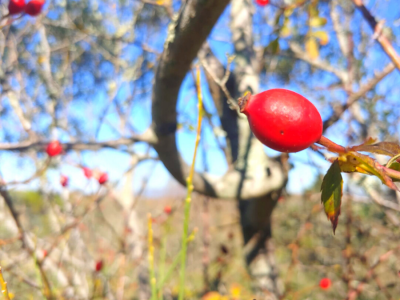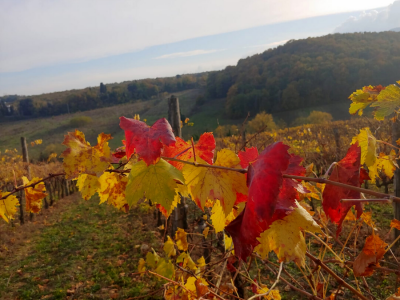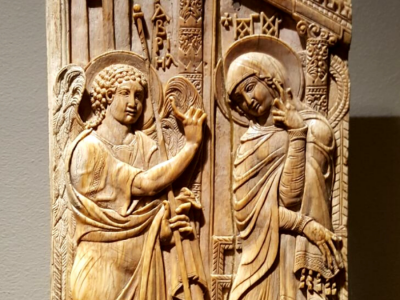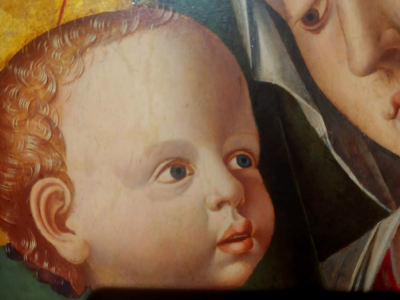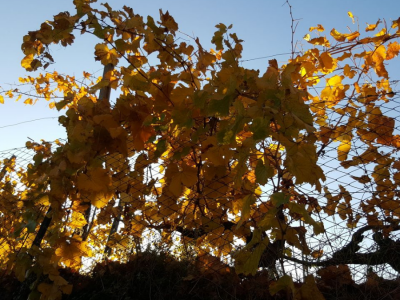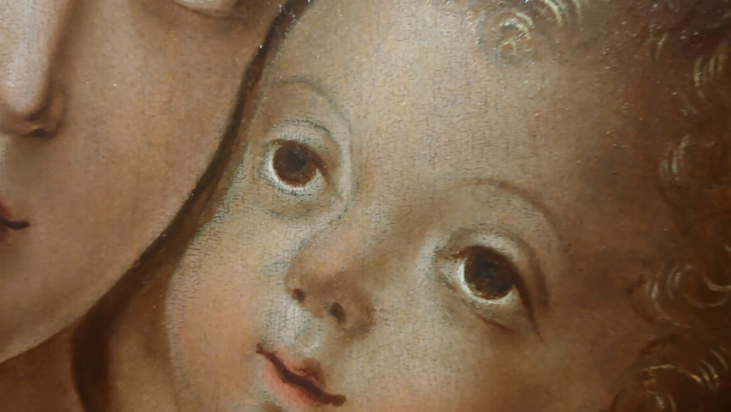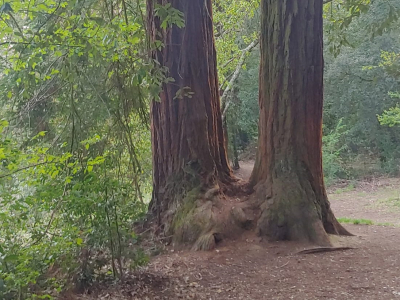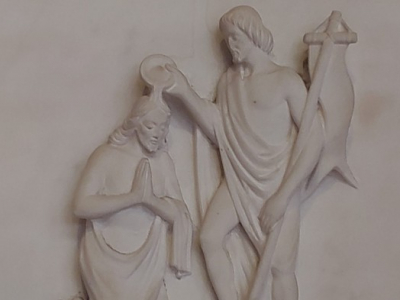stdClass Object
(
[id] => 19049
[title] => And do not forget while in exile
[alias] => and-do-not-forget-while-in-exile
[introtext] => The logic of charisms/10 - It is necessary to be able to imagine new forms of life in common, more nomadic and fluid.
by Luigino Bruni
Published in Avvenire 21/11/2021
"And each time my system was beautiful, vast, spacious, comfortable, clean and above all smooth. And each time a spontaneous and unexpected product of universal vitality came to deny my childish and antiquated science, the deplorable daughter of utopia".
Charles Baudelaire, Exposition Universelle, 1855
There is no Christianity without community, even when communities fall ill and become difficult. Forgetting this means denying the humanism of the Bible and the Gospels.
I am very fascinated by the figure of the prophet Jeremiah. While everyone - priests, kings, and court prophets - denied that Nebuchadnezzar's Babylonians would destroy the temple and conquer Jerusalem, Jeremiah persistently insisted that Israel would be defeated and deported to a long exile. However then, with the same prophetic certainty, he added: in the end a remnant will return, our history will continue, because one story is over, but our story is not over.
[fulltext] =>
The Church has already been in exile for some time, although many are not aware of it. Jerusalem and the temple have already been occupied by new Babylonians. They have not been destroyed, simply put to earn and make a profit for the new insatiable gods of consumption and merit. And within this exile, Jeremiah, and with him the whole Bible, continue to repeat to us: one story is over, but history is not over, because a faithful remnant will continue living it. This is our non-futile hope. The other hopes are mere illusions from false prophets, registered on the payroll of the Babylonians.
It is within this time of exile that I have also chosen to place this reflection on charismatic communities. And it is with that spirit that they should be read, along the rivers of Babylon. I did not hang my pen on the willows, but I tried to write, to sing in the land of exile. Pages that have not denied exile, but have tried to look beyond the great rivers. Today we know that the Jews wrote their most beautiful books while in Babylon, the Bible was born there and it was there that they were able to talk about the Covenant and the Promised Land when they could no longer see them and they had only become a bitter memory. We too need talk about communities and charisms, about their pains and their problems, without ever taking our eyes off the covenant and the Promised Land.
Communities that are born around a charism are among the most sublime and exalting realities on earth. They are vulnerable and fragile, because it is always the deepest and most intimate part of life that is inherently vulnerable, fragile, and exposed to tragedy. The promise of the Bible and the Gospels will always be a community promise; it will always take place among us, not only within our hearts. If you want to kill the Bible and the Gospels, kill the communities - and many are trying, trying to transform Christian life into an individual matter without any strong affiliations, an emotional and solitary spiritual consumerism, finally turned harmless.
The Church was born as a community. Jesus called twelve men, twelve friends, and immediately other men and women. With them, he gave life to an extraordinary community experience that neither the betrayal of Judas nor that of Peter nor Golgotha managed to defeat. The first gesture of Jesus in Capernaum was a call to his disciples, to his companions, to tell us that that history is a collective history, the history of "two or more". The first name of Christians was a plural name. Then we have the apostles, and then the thousands of charisms that over the centuries have fertilized and enriched the earth with their communities. The letters of St. Paul speak to us of communities with problems no less serious than those highlighted in this series (and in the four other of previous years). It was the historical closeness to Christ and to a charismatic man like Paul that created the preconditions for getting out of excess, errors and exaggerations of various kinds in his churches. For this same reason, it is much more likely that the problematic phenomena we have spoken of are more common in communities with a living (or recently deceased) founder than in those of ancient and very ancient charisms.
Community vocations are something immense and this immensity is precisely what makes them so risky. It is a game of multiple mirrors between the people, the community, and the charism. An admirable, fantastic, sublime game, which explains much of the irresistible power and charm of these experiences. There is an admirable coincidence between the inside and outside, between the individual and collective soul. What comes from outside is perceived as already existing within. The more you dig into the soul, the more you find the community, the more you deepen the community, and the more you find your own soul recognizing it in the souls of our companions. When say "I" and someone else answers "we", we say "we" and I hear my own name pronounced, returning to me, now immense like the world, infinite like heaven. The thrill of such an experience is truly fantastic and unique, and those who experience it would not give it up for anything in the world. Herein lies the extraordinary aspect of charismatic communities, together with their risks and problems, as in all wonderful experiences because, like mountain climbs, they take place on the edge of the precipice.
An important element in this entire individual and collective dynamic, perhaps the most decisive and neglected one, is time. Because a vocational experience in youth and in adult life are different, very different, and at times they can become too much. Sunrise and sunset are separated by a very bright noon, and so they do not recognize each other as moments of the same day, as different shades of the same light. There is a profound elective affinity between youth and charismatic communities. A young person is generous, goes beyond the limits of the ordinary and loves fantastic, radical, exaggerated and extreme experiences, because he or she wants to savour life to its very core. Young people are pure, they love and live gratuitousness and have a genuine and non-ideological faith. Hence, when they encounter the infinite energy released by a charism, they begin to take flight. They take off and never stop. They believe everything, they hope for everything, and they endures anything in order not to return from that mad flight, in order to be shipwrecked in that sea. Community life almost always strengthens the qualities of the young, it makes them flourish, blossom, bear the first tasty fruits. Few things on earth are more beautiful and pure than a young person in love with a charism. Especially if that young person holds a spiritual vocation, a true calling.
Hence, the first effect of a spiritual vocation, especially when it grows within a community, is lengthening the time of youth, perhaps also of childhood. One remains young - an evangelical child - for a long time, and some dimensions of youth remain throughout one's life - a certain beautiful naivety, seeing through eyes of a child, the ability to be moved when faced with beauty, the amazement when met with excessive goodness or wickedness. Due to the extraordinary experience that one lives as a young person, it is therefore rather comprehensible why becoming an adult within a charismatic community can be particularly difficult, and sometimes, if not often, something breaks during the passage. First of all, as young people it is difficult, if not impossible, to understand that the marvellous things that are happening to us are merely the feast of the wedding day, and hence destined to be short-lived. It is difficult or impossible, because if we were truly aware of it we would stop before even starting the journey. A providential unconsciousness is essential in order to take the first step. However, if adequate accompaniment is lacking in the second years of community life, the inevitable impact with the principle of reality can be devastating. Because if the maturation process is not experienced as a passage towards even greater awareness and truth, it will only be interpreted as a decline and not infrequently as betrayal and deception.
Faced with the first necessary crevices in the wall of that first youthful vocation and the concrete forms it takes, instead of letting the first surrounding wall collapse thereby discovering new gardens and meadows on which to run free, too often a builder is called instead to repair the leaks and restore the old building. Thus, when the day arrives when the patches no longer hold up and the building collapses, the inevitable and sudden collapse will not be seen as a possibility of a better, wider and brighter future, but as an earthquake and complete destruction. Instead of indicating new horizons for a new mature life, the landscape that the fall has opened up in front of our eyes will now only inspire fear, leaving us stuck in the midst of the remaining human, psychological and vocational rubble. If the reasoning made in these weeks contains something real, it is the realization that in order for charismatic communities to continue to attract people with vocations and thus experience a new spring, a remnant after exile, there is an immense and urgent need for courage and risk taking in letting the walls collapse. It is necessary to know how to imagine new forms of life in common, more nomadic and fluid, especially in the adult phase of people's lives. Generating more ways of living firmly belonging to the community, faithful to the spirit of the charism while at the same time being capable of changing the concrete and organizational forms it gave life to in the past. The vocation is one, but the forms a vocation can take are many. In the time of exiles and floods, only what is agile and small will survive.
One last note, one last, whispered, personal word. While you are living the adult time of exile, never forget the time of your first love, when your heart heard different and eternal words (Hosea 2,16) and your eyes saw another gaze. Because it is not a lie, it is just far away for now. You wanted to touch the sky and you touched your land, perhaps to finally be able to truly love it. Do not forget the first covenant; do not forget that great promise: it was all for you. Do not forget that at the beginning of a life that has now become complicated, there once was something truly wonderful. There was a young woman, a young man, who in the full splendour of their age, believed and left to follow an unconditional yes. In the beginning, there was something wonderful, great beauty, gratuitousness, and an infinite generosity. And if it was there in the beginning, it will be there forever. No disappointment, no pain, nothing in the world can erase this infinite beauty-gratuitousness-generosity. Do not let them erase it. And then try to rise again.
When the Son of man returns to earth will he still find faith in the community?
Dedicated to Friederike, who taught me that an adult vocation can be even more beautiful than the splendid one of youth.
Next Sunday I will return to the other strand of my collaboration with the Avvenire: biblical commentaries. With Hosea, a difficult and much loved prophet. Thanks you dear readers for following me in these ten episodes on communities, interrupted by an unexpected month of convalescence that perhaps gave another flavour to my words. Some people found them harsh, I understand this; I hope others found them useful too, written in the same spirit in which you say harsh but necessary words to a friend, or to yourself. Thank you to Marco Tarquinio, editor and dear friend, who continues to follow me, confident and courageous, in this difficult and wonderful weekly labour, wading into exile.
Thank you, always, to Luigino Bruni for his friendship, his generous tenacity even in trial and for his luminous fidelity to the Word, to the shared words and to the uncomfortable yet welcoming truth that gives meaning to the enterprises of life and nourishes our being a community. (MT)
[checked_out] => 0
[checked_out_time] => 0000-00-00 00:00:00
[catid] => 1162
[created] => 2021-11-21 05:41:26
[created_by] => 4501
[created_by_alias] => Luigino Bruni
[state] => 1
[modified] => 2021-11-29 18:16:18
[modified_by] => 64
[modified_by_name] => Antonella Ferrucci
[publish_up] => 2021-11-21 05:41:26
[publish_down] => 0000-00-00 00:00:00
[images] => {"image_intro":"","float_intro":"","image_intro_alt":"","image_intro_caption":"","image_fulltext":"","float_fulltext":"","image_fulltext_alt":"","image_fulltext_caption":""}
[urls] => {"urla":false,"urlatext":"","targeta":"","urlb":false,"urlbtext":"","targetb":"","urlc":false,"urlctext":"","targetc":""}
[attribs] => {"article_layout":"","show_title":"","link_titles":"","show_tags":"","show_intro":"","info_block_position":"","info_block_show_title":"","show_category":"","link_category":"","show_parent_category":"","link_parent_category":"","show_associations":"","show_author":"","link_author":"","show_create_date":"","show_modify_date":"","show_publish_date":"","show_item_navigation":"","show_icons":"","show_print_icon":"","show_email_icon":"","show_vote":"","show_hits":"","show_noauth":"","urls_position":"","alternative_readmore":"","article_page_title":"","show_publishing_options":"","show_article_options":"","show_urls_images_backend":"","show_urls_images_frontend":"","helix_ultimate_image":"images\/2021\/11\/21\/211121-logica-carismatica.png","helix_ultimate_image_alt_txt":"","spfeatured_image":"images\/2021\/11\/21\/211121-logica-carismatica.png","helix_ultimate_article_format":"standard","helix_ultimate_audio":"","helix_ultimate_gallery":"","helix_ultimate_video":"","video":""}
[metadata] => {"robots":"","author":"","rights":"","xreference":""}
[metakey] =>
[metadesc] =>
[access] => 1
[hits] => 2784
[xreference] =>
[featured] => 1
[language] => en-GB
[on_img_default] =>
[readmore] => 11473
[ordering] => 0
[category_title] => EN - The logic of charisms
[category_route] => organizzazioni-e-ideali/it-logica-carismatica
[category_access] => 1
[category_alias] => en-the-logic-of-charisms
[published] => 1
[parents_published] => 1
[lft] => 158
[author] => Luigino Bruni
[author_email] => lourdes.hercules.91@gmail.com
[parent_title] => Organizzazioni e Ideali
[parent_id] => 1028
[parent_route] => organizzazioni-e-ideali
[parent_alias] => organizzazioni-e-ideali
[rating] => 0
[rating_count] => 0
[alternative_readmore] =>
[layout] =>
[params] => Joomla\Registry\Registry Object
(
[data:protected] => stdClass Object
(
[article_layout] => _:default
[show_title] => 1
[link_titles] => 1
[show_intro] => 1
[info_block_position] => 0
[info_block_show_title] => 1
[show_category] => 1
[link_category] => 1
[show_parent_category] => 1
[link_parent_category] => 1
[show_associations] => 0
[flags] => 1
[show_author] => 0
[link_author] => 0
[show_create_date] => 1
[show_modify_date] => 0
[show_publish_date] => 1
[show_item_navigation] => 1
[show_vote] => 0
[show_readmore] => 0
[show_readmore_title] => 0
[readmore_limit] => 100
[show_tags] => 1
[show_icons] => 1
[show_print_icon] => 1
[show_email_icon] => 1
[show_hits] => 0
[record_hits] => 1
[show_noauth] => 0
[urls_position] => 1
[captcha] =>
[show_publishing_options] => 1
[show_article_options] => 1
[save_history] => 1
[history_limit] => 10
[show_urls_images_frontend] => 0
[show_urls_images_backend] => 1
[targeta] => 0
[targetb] => 0
[targetc] => 0
[float_intro] => left
[float_fulltext] => left
[category_layout] => _:blog
[show_category_heading_title_text] => 0
[show_category_title] => 0
[show_description] => 0
[show_description_image] => 0
[maxLevel] => 0
[show_empty_categories] => 0
[show_no_articles] => 1
[show_subcat_desc] => 0
[show_cat_num_articles] => 0
[show_cat_tags] => 1
[show_base_description] => 1
[maxLevelcat] => -1
[show_empty_categories_cat] => 0
[show_subcat_desc_cat] => 0
[show_cat_num_articles_cat] => 0
[num_leading_articles] => 0
[num_intro_articles] => 14
[num_columns] => 2
[num_links] => 0
[multi_column_order] => 1
[show_subcategory_content] => -1
[show_pagination_limit] => 1
[filter_field] => hide
[show_headings] => 1
[list_show_date] => 0
[date_format] =>
[list_show_hits] => 1
[list_show_author] => 1
[list_show_votes] => 0
[list_show_ratings] => 0
[orderby_pri] => none
[orderby_sec] => rdate
[order_date] => published
[show_pagination] => 2
[show_pagination_results] => 1
[show_featured] => show
[show_feed_link] => 1
[feed_summary] => 0
[feed_show_readmore] => 0
[sef_advanced] => 1
[sef_ids] => 1
[custom_fields_enable] => 1
[show_page_heading] => 0
[layout_type] => blog
[menu_text] => 1
[menu_show] => 1
[secure] => 0
[helixultimatemenulayout] => {"width":600,"menualign":"right","megamenu":0,"showtitle":1,"faicon":"","customclass":"","dropdown":"right","badge":"","badge_position":"","badge_bg_color":"","badge_text_color":"","layout":[]}
[helixultimate_enable_page_title] => 1
[helixultimate_page_title_alt] => The logic of charisms
[helixultimate_page_subtitle] => Organizzazioni e Ideali
[helixultimate_page_title_heading] => h2
[page_title] => The logic of charisms
[page_description] =>
[page_rights] =>
[robots] =>
[access-view] => 1
)
[initialized:protected] => 1
[separator] => .
)
[displayDate] => 2021-11-21 05:41:26
[tags] => Joomla\CMS\Helper\TagsHelper Object
(
[tagsChanged:protected] =>
[replaceTags:protected] =>
[typeAlias] =>
[itemTags] => Array
(
[0] => stdClass Object
(
[tag_id] => 139
[id] => 139
[parent_id] => 1
[lft] => 275
[rgt] => 276
[level] => 1
[path] => the-logic-of-charisms
[title] => The logic of charisms
[alias] => the-logic-of-charisms
[note] =>
[description] =>
[published] => 1
[checked_out] => 0
[checked_out_time] => 0000-00-00 00:00:00
[access] => 1
[params] => {}
[metadesc] =>
[metakey] =>
[metadata] => {}
[created_user_id] => 64
[created_time] => 2021-08-26 06:04:25
[created_by_alias] =>
[modified_user_id] => 0
[modified_time] => 2021-08-26 06:43:56
[images] => {}
[urls] => {}
[hits] => 5169
[language] => *
[version] => 1
[publish_up] => 2021-08-26 06:04:25
[publish_down] => 2021-08-26 06:04:25
)
)
)
[slug] => 19049:and-do-not-forget-while-in-exile
[parent_slug] => 1028:organizzazioni-e-ideali
[catslug] => 1162:en-the-logic-of-charisms
[event] => stdClass Object
(
[afterDisplayTitle] =>
[beforeDisplayContent] =>
[afterDisplayContent] =>
)
[text] => The logic of charisms/10 - It is necessary to be able to imagine new forms of life in common, more nomadic and fluid.
by Luigino Bruni
Published in Avvenire 21/11/2021
"And each time my system was beautiful, vast, spacious, comfortable, clean and above all smooth. And each time a spontaneous and unexpected product of universal vitality came to deny my childish and antiquated science, the deplorable daughter of utopia".
Charles Baudelaire, Exposition Universelle, 1855
There is no Christianity without community, even when communities fall ill and become difficult. Forgetting this means denying the humanism of the Bible and the Gospels.
I am very fascinated by the figure of the prophet Jeremiah. While everyone - priests, kings, and court prophets - denied that Nebuchadnezzar's Babylonians would destroy the temple and conquer Jerusalem, Jeremiah persistently insisted that Israel would be defeated and deported to a long exile. However then, with the same prophetic certainty, he added: in the end a remnant will return, our history will continue, because one story is over, but our story is not over.
[jcfields] => Array
(
)
[type] => intro
[oddeven] => item-odd
)
